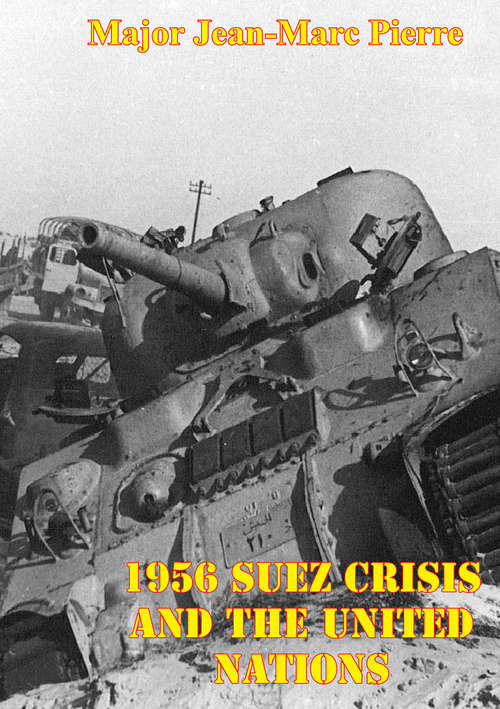1956 Suez Crisis And The United Nations
By:
Sign Up Now!
Already a Member? Log In
You must be logged into Bookshare to access this title.
Learn about membership options,
or view our freely available titles.
- Synopsis
- The 1956 Suez Crisis is the first example of a pre-emptive strike after World War II. The episode provides lessons about the lengths to which nations will go to secure their interests and the limits of the United Nation's influence. How the UN uses its power is the point of contention. In 1956, Great Britain, France, and Israel believed the organization would protect their security interests through the unbiased maintenance of international law. Yet, as common in the Cold War, UN action was hampered. A war began and ended with a cease-fire in fifty-five hours. Three militarily superior armies won their tactical fights but were strategically defeated. Most notably, the influence of global authority shifted to the superpowers. Through all this, the UN changed its mission and purpose. The primary question therefore is did the UN resolve the 1956 Suez Crisis? Resolution had to include a status quo ante bellum, the return to the existing system before the war, or the recognition of a new international Regime. The UN's ability to resolve such crises directly affects its legitimacy in the international community.
- Copyright:
- 2014
Book Details
- Book Quality:
- Publisher Quality
- ISBN-13:
- 9781782896081
- Publisher:
- Pickle Partners Publishing
- Date of Addition:
- 03/04/18
- Copyrighted By:
- Pickle Partners Publishing
- Adult content:
- No
- Language:
- English
- Has Image Descriptions:
- No
- Categories:
- History, Military, Nonfiction
- Submitted By:
- Bookshare Staff
- Usage Restrictions:
- This is a copyrighted book.
